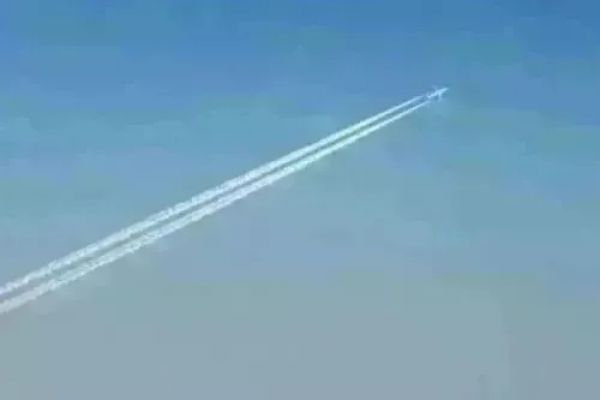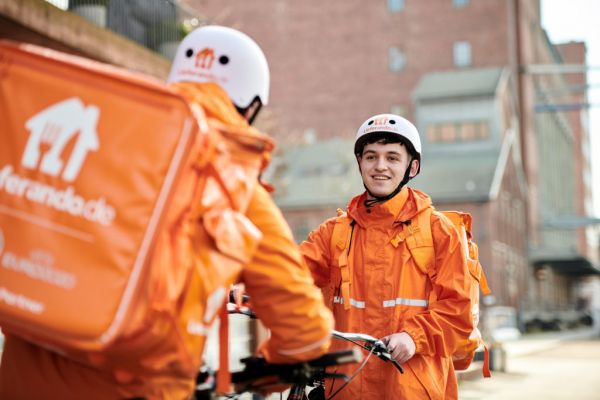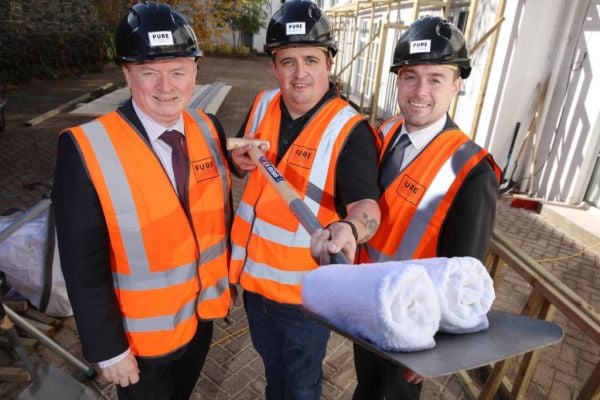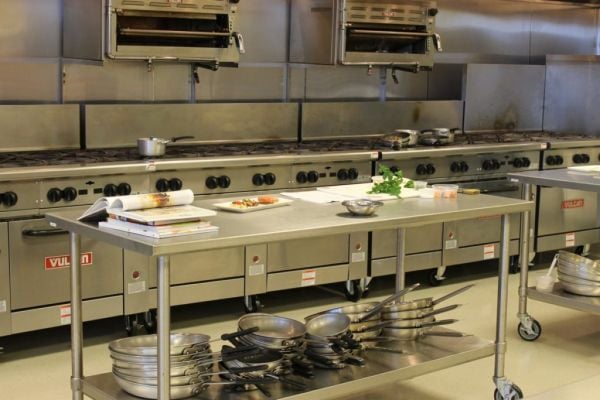Record temperatures at the Farnborough Airshow last week have ratcheted up pressure on global aviation to shrink airplane emissions and turn a raft of potential solutions - many of which are yet to be proven - into reality.
Details
The airline industry, responsible for nearly 3% of global carbon dioxide emissions, faces formidable challenges to meet ambitious goals to cut emissions. Global airlines and aerospace manufacturers have vowed to be net zero by 2050.
The boss of planemaker Airbus AIR.PA said the heatwave was a strong reminder of the need for urgency.
"I consider there is urgency, speed is of the essence in the transition," Guillaume Faury told Reuters. "And in an industry that is hard to abate ... we need to be moving fast."
Pressure is coming from governments and customers, especially corporate travelers whose companies are looking to reduce carbon footprints.
"We have a basket of opportunities staring us in the face, where we just need to figure out which levers to pull in what timeframe with what economics to enable that transition," United Airlines UAL.O Chief Sustainability Officer Lauren Riley said.
The United States and Europe are trying to boost production of sustainable aviation fuel, or SAF, which is now made in miniscule quantities from feedstocks like used cooking oil, and can be two to five times more expensive than standard jet fuel.
In the United States, Congress has to date failed to approve tax credits that would make SAF cost competitive.
"SAF is the only solution that allows you in the short term to have an impact because you can take an airplane you have operated for the last 10 years and turn it into operating now using SAF," said former Rolls-Royce and Airbus executive Eric Schulz, Chief Executive of SHZ Consulting.
"So if you are talking about a short term solution, that's the only one."
Rolls-Royce RR.L says biofuels cannot not solve the problem alone.
"There's only so much used cooking oil you can synthesize," said the engine maker's Chief Technology Officer Grazia Vittadini.
"If you really don't want to start competing with agriculture, with the use of potable water, you need to go into synthetic fuel."
The problem is there is not much "green" hydrogen - produced using renewable energy - around to combine with captured carbon to make it, she said.
"The uptake of SAF is absolutely a bottleneck we need to work on collectively," she said.
Other short-term options include boosting the efficiency of engines, speeding up the replacement of older less efficient aircraft and improving the routing of airplanes to cut emissions.
International Air Transport Association Director General Willie Walsh said cutting carbon was not free. "There is going to be a cost to the transition to net zero," he said. That will inevitably mean higher air fares, industry leaders say.
LONG FLIGHT PATH
Companies are working on longer-term solutions like electric or hydrogen-powered airplanes, but critics say those are still a long way from reality.
"Hydrogen is absolutely a solution, but it's not for tomorrow morning because the changes to be done in design are so massive that it's going to take more than one generation of airplanes to get there," Schulz said.
Airbus and more than a half dozen airlines said at the show they had signed letters of intent to potentially buy carbon removal credits to offset the emissions from air travel from a planned direct air carbon capture and storage facility in Texas.
The technology has yet to be proven up to scale. And it's expensive, costing hundreds of dollars to capture just a ton of CO2. Several previous carbon capture and storage efforts have failed.
The United Nations' International Civil Aviation Organization (ICAO) is expected to try to reach agreement this year on new rules to cut emissions from international aviation.
Boeing BA.N Commercial Airplanes Chief Executive Stan Deal said it was important new requirements were "underpinned by real technology that can meet the standards."
The prior ICAO standards were criticized by many environmentalists for doing little to cut emissions.
While pros and cons of competing technologies were debated, the need for progress appeared settled.
"The industry doesn't need any more signals," said Embraer Commercial Aviation CEO Arjan Meijer.
"You only have to walk around the air show here to see that sustainability is at the front of everyone's mind. And if you compare what you see today to what you saw three years ago, it's a massive shift."
Aviation Nurses A Nasty Headache As Travel Recovers From COVID
The above news was followed by news that aerospace has turned the page on an unprecedented pandemic demand shock with dozens new orders at its largest air show in three years - only to face mounting worries over supply chains and reminders that its future hinges on decarbonisation.
From rural Farnborough to nearby Heathrow, last week brought stark evidence of the supply crunch now entangling manufacturers and airlines alike, with shortages of both labour and parts.
It comes as airlines - whose expansion had propelled the industry to record profits in the past decade, only to collapse during the pandemic - are desperate to cash in on a nascent recovery in international travel.
Even the Farnborough Airshow struggled to find enough hospitality staff despite downsizing from a seven-day aviation festival to a five-day trade show with no weekend aerobatics.
"We have to accept that a lot of people left the aviation industry and the aerospace industry during 2020 and it is difficult to bring them back," Emirates president Tim Clark told delegates after clashing with Heathrow over capacity curbs.
Departing Farnborough attendees got a personal taste of the resulting travel chaos after discussing their own shortages of labour, parts and materials at the July 18-22 aerospace event.
Long lines formed at Britain's airports, Eurostar train terminal and the port of Dover on Friday - the start of the busiest travel weekend since 2019. Read full story
For years, the alternating Farnborough and Paris air shows fed a fast-growing ecosystem as airlines lavished new orders on manufacturers, who served that demand in part by encouraging their supply chains to set up facilities in purchasing nations.
Posters this week continued that theme of a connected, cleaner world as suppliers defended emissions targets, but campaigners said they did not go far enough. Read full story
Now, global supply chains need fixing and Western factories and the airlines they serve are also beset by problems. Longer term, analysts say supply chains are likely to get shorter.
"This is not a great year to say 'you need a new supplier, have you thought about setting up here'," a senior aerospace executive said. "The industry is hunkering down this week; there are not a lot of discussions with edge players or new entrants."
Airbus in particular is wrestling with delays as it tries to increase output in anticipation of higher demand. In part that is down to engine shortages, which in some cases have been traced to glitches at tiny suppliers, executives said.
"STRONG FUNDAMENTALS"
Despite the summer rebound - outbound airline bookings from the UK for example are at 88% of pre-pandemic levels, according to ForwardKeys - there were warnings that inflation could slow the rebound in air traffic that ultimately supports jet demand.
Boeing cut jet demand forecasts this week, while saying they remained stable after adjusting for war-sanctioned Russia.
"Population growth says travel is going to continue strong, so production rates have strong fundamentals behind them," said Stephen Timm, president of Collins Aerospace.
"The question is, are the near term economics going to change the slope of the curve? That's the question we're all asking," he told Reuters, while adding the Raytheon unit would work to support planemakers' ramp-up plans.
Boeing sought to answer that question, and lift concerns over the future of its 737 MAX cash-cow, with a flurry of announcements that translated into gains in its share price.
The future of the MAX, in the wake of two fatal crashes, a two-year grounding and ongoing regulatory issues, is key for the aerospace industry and airlines that have invested hundreds of billions of dollars in making or buying the medium-haul planes.
"Airlines want to support Boeing because they recognise that if they don't, the competitive balance is irreparably damaged and with it any attempt to get discounts," Agency Partners analyst Sash Tusa said.
Airline industry boss Willie Walsh this week also reiterated warnings of becoming too dependent on Europe's Airbus in the $150 billion jet market's transatlantic duopoly.
Sitting on a hefty order backlog, Airbus had a quiet week after a massive recent order from China, allowing it to focus instead on setting out decarbonisation plans in Britain's record heat, while leaving the Farnborough stage to rival Boeing.
"It doesn't mean we are less committed to taking orders and growing the company," Chief Executive Guillaume Faury told Reuters. "It's probably just that the demand is less synchronised (with the air show) and that the supply chain issues are more (pressing) than in the past."
News by Reuters, edited by Hospitality Ireland. Click subscribe to sign up for the Hospitality Ireland print edition.









